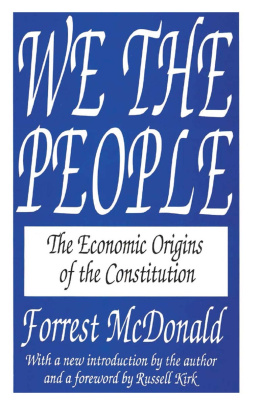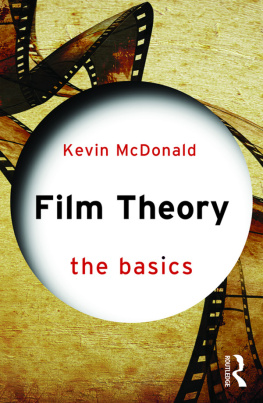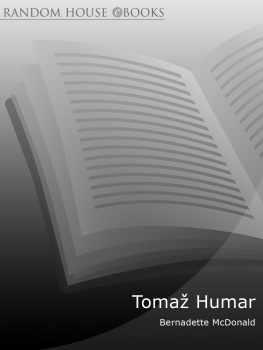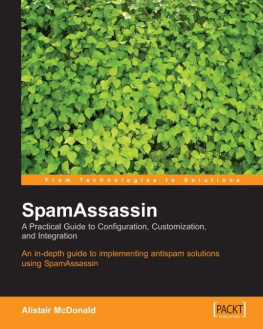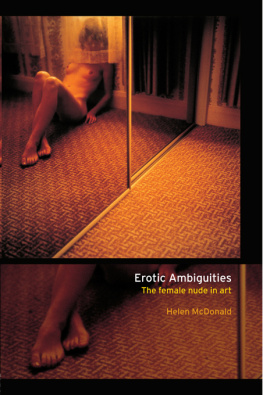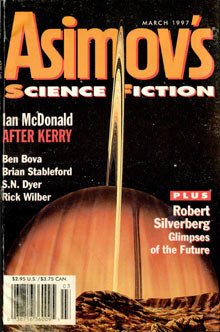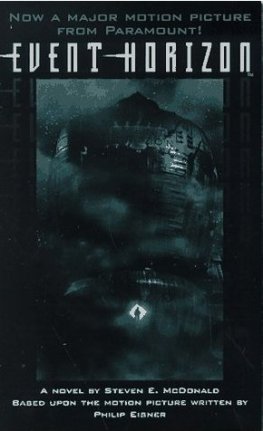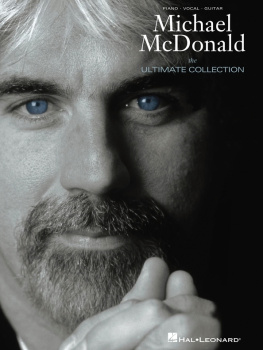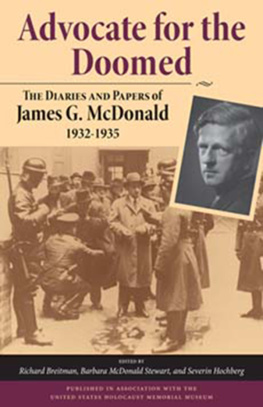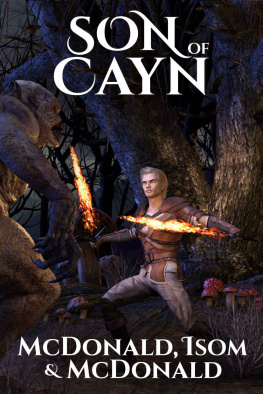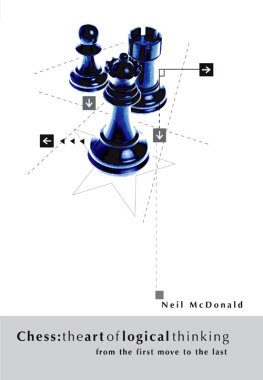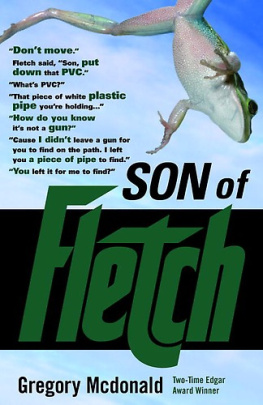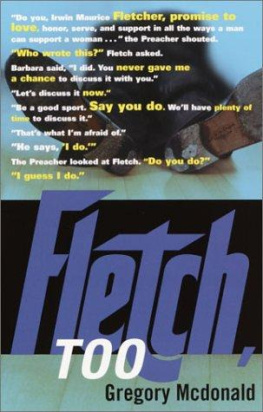McDonald - We the People
Here you can read online McDonald - We the People full text of the book (entire story) in english for free. Download pdf and epub, get meaning, cover and reviews about this ebook. publisher: Taylor & Francis (CAM), genre: Politics. Description of the work, (preface) as well as reviews are available. Best literature library LitArk.com created for fans of good reading and offers a wide selection of genres:
Romance novel
Science fiction
Adventure
Detective
Science
History
Home and family
Prose
Art
Politics
Computer
Non-fiction
Religion
Business
Children
Humor
Choose a favorite category and find really read worthwhile books. Enjoy immersion in the world of imagination, feel the emotions of the characters or learn something new for yourself, make an fascinating discovery.
We the People: summary, description and annotation
We offer to read an annotation, description, summary or preface (depends on what the author of the book "We the People" wrote himself). If you haven't found the necessary information about the book — write in the comments, we will try to find it.
We the People — read online for free the complete book (whole text) full work
Below is the text of the book, divided by pages. System saving the place of the last page read, allows you to conveniently read the book "We the People" online for free, without having to search again every time where you left off. Put a bookmark, and you can go to the page where you finished reading at any time.
Font size:
Interval:
Bookmark:

WE THE
PEOPLE
WE THE
PEOPLE
The Economic Origins of the Constitution
Forrest McDonald
With a new introduction by the author
and a foreword hy Russell Kirk

Originally published in 1958 by The University of Chicago Press.
Published 1992 by Transaction Publishers
Published 2017 by Routledge
2 Park Square, Milton Park, Abingdon, Oxon OX14 4RN
711 Third Avenue, New York, NY 10017, USA
Routledge is an imprint of the Taylor & Francis Group, an informa business
New material this edition copyright 1992 by Taylor & Francis.
All rights reserved. No part of this book may be reprinted or reproduced or utilised in any form or by any electronic, mechanical, or other means, now known or hereafter invented, including photocopying and recording, or in any information storage or retrieval system, without permission in writing from the publishers.
Notice:
Product or corporate names may be trademarks or registered trademarks, and are used only for identification and explanation without intent to infringe.
Library of Congress Catalog Number: 2005054854
Library of Congress Cataloging-in-Publication Data
McDonald, Forrest.
We the people: the economic origins of the Constitution / Forrest McDonald.
p. cm.
Originally published: Chicago: University of Chicago Press, 1958.
Includes index.
ISBN: 1-56000-574-2
1. United States. Constitutional Convention, 1787. 2. United States. Constitution. 3. Pressure groupsUnited StatesHistory18th century. 4. United StatesEconomic conditionsTo 1865. 5. Beard, Charles Austin, 1874-1948. Economic interpretation of the Constitution of the United States.
JK146.M274 1991
322.43097309033dc20
91-20360
ISBN 13: 978-1-56000-574-2 (pbk)
TO PROFESSOR FULMER MOOD
of the University of Texas,
in appreciation of his
inspiration and guidance
Contents
The doctrinaire liberalism and economic determinism of Charles Beards study An Economic Interpretation of the Constitution (1913) dominated the teaching of Americas constitutional history from the second decade of the nineteenth century until nearly the end of the sixth decade. But in 1958 the University of Chicago Press published Forrest McDonalds book We The People: The Economic Origins of the Constitution; and by that Beards ascendancy soon was undone.
Professor McDonald has become the most influential historian of the Constitution of the United States; his reputation equals that enjoyed earlier by such learned writers as Max Farrand and Edwin S. Corwin. His refutation of Beards interpretation was followed by McDonalds E Pluribus Unum: The Formation of the American Republic (1965) and his Novus Ordo Seclorum: The Intellectual Origins of the Constitution (1985). His books about the presidencies of George Washington and Thomas Jefferson, his biography of Alexander Hamilton, and (with Ellen Shapiro McDonald) his Requiem: Variations on Eighteenth-Century Themes have established him invincibly as a principal authorityif not as something grander stillon the formative years of the Republic. Among other honors, he was chosen the Jefferson Lecturer by the National Endowment for the Humanities in 1987, and received the Ingersoll Prize for scholarly writing in 1990.
Charles Beard, by ingenious methods of research, had concluded that the men who drew up the Constitution of the United States, and secured its ratification, were in general bent upon personal aggrandizement and the establishment of a commercial republic. This was a bold work of pioneering American historiography; but McDonald discovered that Beard was quite mistaken in his interpretation of motives and material interests. Professor McDonald followed Beards own methods of data gathering, but with increased thoroughness. It is impossible to justify Beards interpretation of the Constitution as an economic document drawn by a consolidated economic group whose property interests were immediately at stake, McDonald wrote in 1957.
Factors other than economic interests strongly influenced the delegates to the Constitutional Convention, McDonald found, and their votes at Philadelphia did not follow the patterns Beard thought he had discerned. Nor did ratification of the Constitution in the several states actually follow the lines of Beards economic interpretation.
A fatal flaw in Beards thesis, McDonald informs his readers, is the hard fact that mercantile, manufacturing, and public-security investments were not the more important property holdings of the Constitutions delegates, although Beard had so believed; actually, their agricultural properties, particularly of the richer delegates (with few exceptions) bulked far larger in value. There occurred at the Convention no contest between capitalist and farmer, nor any other discernible class conflict along economic lines. As McDonald concludes, Beards thesisthat the line of cleavage as regards the Constitution was between substantial personalty increases on the one hand and small farming and debtor interests on the otheris entirely incompatible with the facts.
No doubt it is true historically that economic concerns loom gigantic in peoples minds. But it does not follow that men and women are concerned only with economic gain: those who fall into that pit dehumanize themselves. Economic advancement for the American nation and for their states was the principal motive for convening the Constitutional Convention. Most of the delegates, nevertheless, seem to have disregarded the question of their own personal advantage when voting or speaking out on economic issues at Philadelphia: in their motives the public interest transcended private gain. The New England delegates were the exception: Gerry, King, Sherman, and Ellsworth clearly endeavored to bring about decisions at the Convention that would advance their private investments.
In short, McDonalds thesis makes fairly clear, interest in economic questions does not of itself warp the character of public men in the direction of selfishness. In such matters, most of the delegates to the Constitutional Convention made their decisions on the basis of what they took to be the general welfare of Americans, rather than working for their ephemeral private or class advantage.
Readers of this new edition of Dr. McDonalds We The People will find its author as judicious as he is candid. A lively public speaker and a manly, good-natured gentleman and scholar, Forrest McDonald deserves to have sat himself in the Constitutional Convention of 1787.
Russell Kirk
When Charles A. Beards An Economic Interpretation of the Constitution was published in 1913, it received a mixed reception. On the one side, about half of the reviews in scholarly journals, including the most prestigious periodicals in the fields of American history, political science, and economics, were warm in their praise. On the other, former President William Howard Taft and future President Warren G. Harding roundly denounced the book, as did many newspapers and a goodly number of journals.
The yea-sayers, however, came to prevail, and did so with almost unparalleled speed. As early as 1918 Beards radical interpretation of the origins of the Constitution began to find its way into American history textbooks, and within a decade thereafter it had become the generally accepted view of the founding. This was a remarkably short time for any new thesis to penetrate the academic establishment, and particularly one that challenged so sacrosanct a subject. The thesis continued to grow in favor until the end of World War II, by which time the book had been reprinted fifteen times and dissenting voices had all but disappeared.
Font size:
Interval:
Bookmark:
Similar books «We the People»
Look at similar books to We the People. We have selected literature similar in name and meaning in the hope of providing readers with more options to find new, interesting, not yet read works.
Discussion, reviews of the book We the People and just readers' own opinions. Leave your comments, write what you think about the work, its meaning or the main characters. Specify what exactly you liked and what you didn't like, and why you think so.

